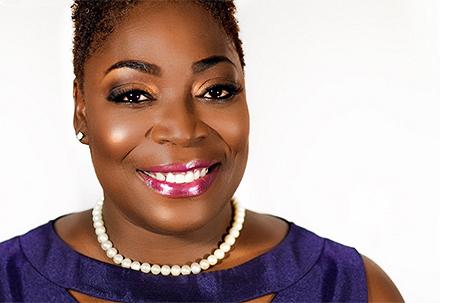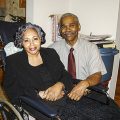

If we are fortunate enough to see our parents age to the point of becoming octogenarians, we feel to a certain extent blessed that they are still here with us — until that aging process begins to take a toll on them and ultimately on you as their caregiver.
In the United States and around the world, many people now have their aging parents living with them and managing the best way they know how depending on the circumstances. Sometimes, they may have to make the heartbreaking decision to put their parents in a facility because the long-term care is more than they can manage.
Whatever the needs may be, however, having aging parents requires the presence of mind, planning, and hoping that you have others in your family who will be able to help you ease what may become a burden in the midst of that blessing of having them still among us.
While we want our parents to gracefully slip away peacefully when their time comes, it often does not work that way. Dementia, for example, is one disease that has ravaged family members and robbed them of the memories they may have of their loved ones.
On the other side of that elderly person struggling with this disease are the children who are struggling with the fact that their parents can no longer recognize them and at points may become combative because they are frightened of their offspring who they now perceive to be strangers.
We have also been faced with parents who refused to move from their home and want to stay independent, if humanly possible, while the children worry and consistently check in to make sure all is well.
We must think about things like power of attorney, estate probates, and everything in between. We don’t want to think about any of these things, but we must if we are to have a smooth caregiving transition.
According to the American Psychological Association website, 65.7 million Americans — or 29% of the adult population — served as family caregivers for an ill or disabled relative.
Estimates also suggest that most caregivers are female. Furthermore, women are likely to assist with more difficult caregiving tasks, such as toileting and bathing, while men are more likely to assist with finances.
Many caregivers of older people are themselves older adults. Of those caring for someone age 65 or older, the average age of caregivers is 63, with a third of those caregivers in fair to poor health themselves. (Administration on Aging, 2004)

Meet Felicia Phillips, who is currently taking care of her aging parents. I asked her three questions, and her answers give you a good idea of what a caring adult child does on an average day with their aging parents.
ATS: Can you just briefly tell the SUN how your parents came to live with you?
FP: After a few years of regular hospital admissions for my mother, 71, with diabetes, epilepsy, hypertension, vascular dementia, stage 3 kidney disease, sleep apnea and Alzheimer’s disease – and declining health for my dad, 73, with Parkinson’s disease — my husband and I knew that we had to better position ourselves to help them more. In 2017, we convinced them to move out of my childhood home in East Mt. Airy to an apartment within walking distance of my home in Delaware County. Unfortunately, our home at the time was too small to accommodate them.
Moving my parents closer to us would buy us time until we could all move into a larger home. It would also allow them to remain somewhat independent and eliminate our 45-minute drive to their home when they required help. After the first year, we knew that time was not on our side as my parents seemed to require more and more care, and caring for them was causing me stress and anxiety that I had never experienced.
When a friend called to tell us about a fire truck outside of my parents’ apartment as we were enjoying praise and worship at Dare to Imagine Church and my mom confessed that she was the reason for the emergency response, we knew we had to do more. We had to get serious about our plans to integrate our households to relieve the stress of maintaining three residences –- my home, my parents’ home, and their apartment –- and hopefully make caring for them a tiny bit easier and safer.
In 2019, we relocated to Georgia and into a home large enough for my husband, two daughters and my parents.
ATS: What are the challenges with having them in your midst 24 hours a day?
FP: Just like being a mom or a wife, you cannot turn caregiving on and off — especially when you are living under the same roof. I am a caregiver 24 hours a day, 7 days a week, which means that my parents have unrestricted access. I used to be able to decline a call if I was busy or tired, but it is much harder to ignore knocks on my bedroom door at 11:30 p.m. at night because the remote control is not working, or my dad wants a snack.
Living with my parents also means little to no privacy outside of my bedroom. Pre-COVID, when my friends came to visit, my mother would plop herself down in the living room and inject herself into our conversation as if we ALL had company. And speaking of the living room, I cannot do simple things like sit down alone in front of my fireplace and just be present with God and myself without my parents coming with their demands. Sometimes, I want to sit downstairs and just be. It is extremely hard to just be when you care for two seniors in your home.
ATS: Where do you find time to decompress? What are the things you do?
FP: There is no time to decompress, so I try to set some loose boundaries. I do not typically serve breakfast before 9 am unless I am already out and about. They used to call me on my cell phone and ask for breakfast before 7 am. Now, the time that I awaken – usually around 6 am – until about 9 am – is my time to get things done with the least bit of disruption. It is not exactly “me” time, because I often use that time to get a jumpstart on my non-traditional workday, but I also use it to pray, read my Bible, check and respond to emails, or read. I enjoy reading a lot and have been quite intentional in making time to read. I also workout 5-6 days per week. I started my fitness journey the same year I became a caregiver. Exercise, along with prayer and therapy, have been a Godsend for me and an awesome way to allow this caregiver to care for herself.
While Felicia is a Godsend to her parents, it has come at a personal toll on her own family and in her work life balance. It is a classic case of raising the ones who first raised us.
















Leave a Comment